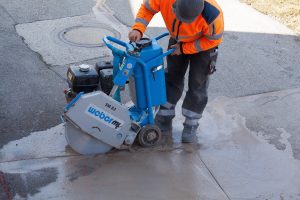
When it comes to changing the face of the UK through construction, all indications show that it is all systems go with the only way being forward. Any person who has visited London in recent times can attest to this fact based on the number of construction projects being undertaken within the central business districts and also along the River Thames. Other parts of the nation have not been left behind in the construction boom which is no doubt changing the fiscal and visual landscape across the entire UK.
How Have the Ongoing Construction Developments Impacted the State of the Economy?
To understand the true value of the ongoing construction boom in both commercial and residential developments, you just have to look at the latest statistics released by the Government. According to data from The Office for National Statistics, the construction industry realised the record breaking figure of £113,127 at the end of 2018. This figure is best reflected in the ever-increasing number of construction companies which are operating across the UK. In fact, compared to the same period last year, the number of construction companies in the nation has increased by a record 3.5% (representing 11,146 construction firms).
With the Boom in Construction Comes More Noise Pollution – a MAJOR Cause for Concern
As more construction firms take on new commercial and residential development projects, the economy is on an upturn but there is another major cause for concern that is arising – noise pollution. To ensure that local communities around the areas of construction are not affected by the noise being produced from construction sites, local authorities have the power to monitor and assess the noise levels being recorded from these sites. Research has shown that noise negatively impacts both physical and emotional health as well as slowing the learning curve for young kids and it is therefore pertinent that noise levels from construction sites are controlled. In addition it’s important to research how to minimise structure borne noise not simply ambient noise. It is worth noting that noise control does not just benefit the communities living around construction sites but also the workers putting up the buildings. According to data collected across the UK from 2017–2019, around 21,000 workers in construction sites suffered from audio impairments making noise control a major issue for property developers.
What Is the Current Government Policy When It Comes to Noise Control on Construction Sites?
Property developers and construction site managers have a responsibility to follow certain Government regulations, policies and codes of practice when it comes to noise control, KEY among them being the BS 5228. This British Noise Control Standard is designed to ensure that vibration levels in construction sites as well as noise levels are kept at an ‘acceptable’ level to protect the communities around the construction sites such as hospitals, schools and private property owners. To ensure that construction sites adhere to this Standard, it is usually important to carry out regular site inspections. Failure to regularly inspect and assess a site to ensure compliance to the BS 5228 Standard can lead to Local Government Authorities putting in place an enforcement notice on a construction site thereby shutting it down until the construction site is fully compliant to the Standard. This can end up causing serious financial implications for the developer in charge of a construction site.
What Are Some of the Noise Control Measures Recommended in the BS 5228 Standard?
To minimise noise pollution in construction sites, this legislation proposes that:
• The property developer should only use top-of-the-range and fully functioning equipment during construction
• The machines being used during construction as well as the entire site should be regularly maintained
• The construction equipment should be operated as per the recommendations of the manufacturer
• Workers should be provided with equipment that is fitted with electric noise compressors rather than diesel/petrol compressors
• Developers should have a centralised generator system in place
• Where possible, it is recommended that developers use electric or hydraulic machines
• Workers should avoid leaving machines idle when they are not in use
How Can an Acoustic Consultant Help You Stay Compliant with Noise Control Regulations?
As demonstrated in this article, it is important that you ensure that your construction site stays compliant with the British Noise Control Regulations. Failure to comply with these regulations can lead to the closure of a construction site. This can have dire financial implications as you will be paying for an idle workforce as well as maintaining equipment and machinery you are not using. The best way to comply with Government noise control regulations? Consult an acoustic consultant before your project starts so that they can advice you on the best noise control measures to put in place at your construction site.